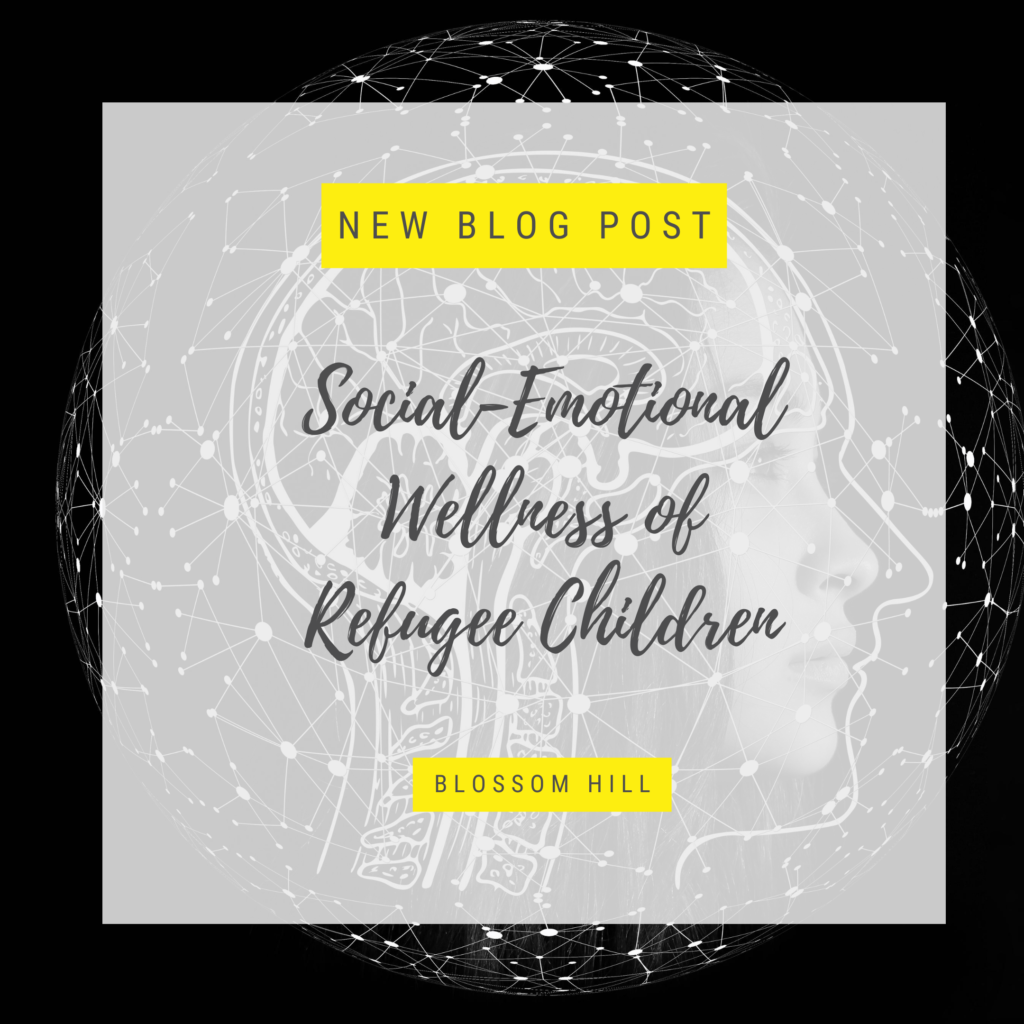Tricia McDonough Ryan, PhD Pediatric Neuropsychologist Cert-Global Mental Health, Refugee Trauma & Recovery
Dr. Tricia Ryan is a Pediatric Neuropsychologist, certified in Global Mental Health and Refugee Trauma & Recovery. Her article on the Social-Emotional Wellness of Refugee Children highlights just how vulnerable refugee children are to various biological changes and adjustment stressors, but how these burdens are so often under looked because of language and cultural barriers. Ultimately, Dr. Ryan writes: “Food and shelter are not enough.” With solutions like Blossom Hill’s social-emotional programs, we can recognize refugee children’s mental health barriers and prioritize the resources necessary to ensure these children have food, shelter…and better mental health outcomes for their futures.

Social-Emotional Wellness of Refugee Children
Now more than ever is a time to raise awareness about the scope and serious impact of traumatic stress on the development of child refugees around the globe. At least 80 million children and their families were displaced from their homes last year, fleeing war, violence, and human injustices. Refugee children accumulate multiple adverse traumatic experiences that extend from those sustained in their country of origin throughout their journey to their post-migration lives. These children have experienced war-related trauma and disruption, separation and loss of loved ones, along with resettlement challenges of poverty, stigmatization, bias, rejection and disruption in identity formation. These traumatic and adverse experiences place refugee children at substantial risk for disruption to the underpinnings of healthy psychological, social, and cognitive development. Unfortunately, these difficulties are often overlooked and undetected due to language and cultural barriers.
The results of a growing body of research indicate neurobiological disruption and elevated biological stress markers (e.g. cortisol) are associated with adverse childhood events. These biological changes, coupled with daily adjustment stressors, leave refugee children vulnerable to acute and prolonged psychological distress symptoms of anxiety, PTSD, and depression, as well as neurocognitive and social difficulties. A complementary body of research indicates social-emotional and cognitive interventions can influence the trajectory of neurodevelopment and the outcome for children who have suffered from trauma and adverse events. Innovative ways to deliver evidenced-based models of psychological, executive functioning, and social skills therapies that are culturally tailored and trauma informed to refugee children are central to improving their wellbeing. It will take the collective effort of health professionals, educators, legislation, and local communities to come together to recognize the burdens of adverse and traumatic events on the neurodevelopment of refugee children and to prioritize resources to change their outcome. Food and shelter are not enough.
I invite you to look at the innovative and passionate work of the Blossom Hill Fellows that aim to proactively intervene with social-emotional programs with refugee children in war-torn regions of the world. Their programs are an inspiration. They honor the strength, courage, and perseverance of refugees while recognizing the need to heal the burdens and traumas they have experienced at young ages.

Leave a Reply